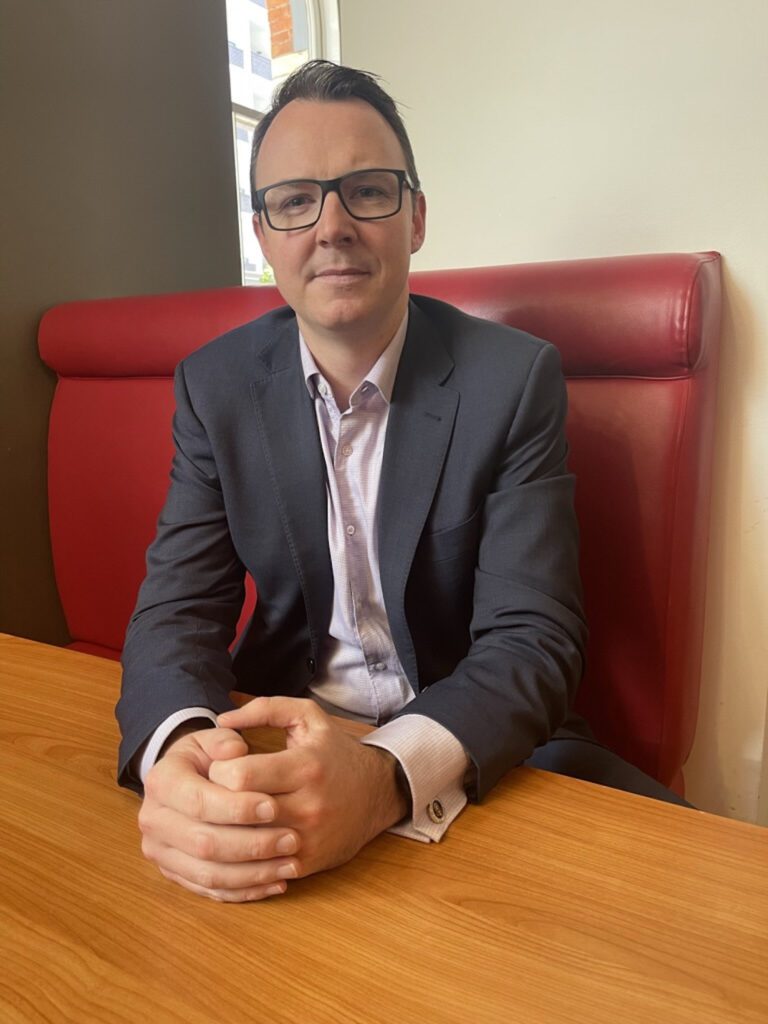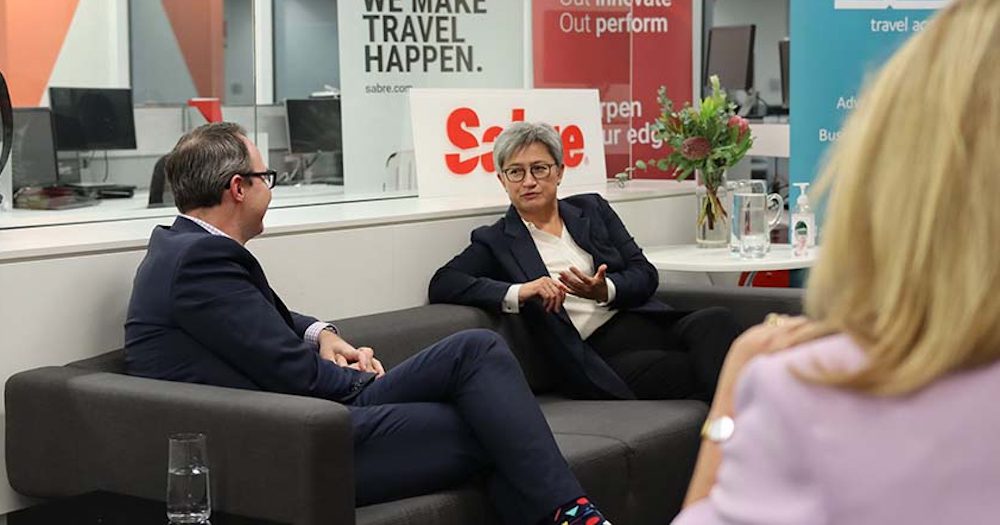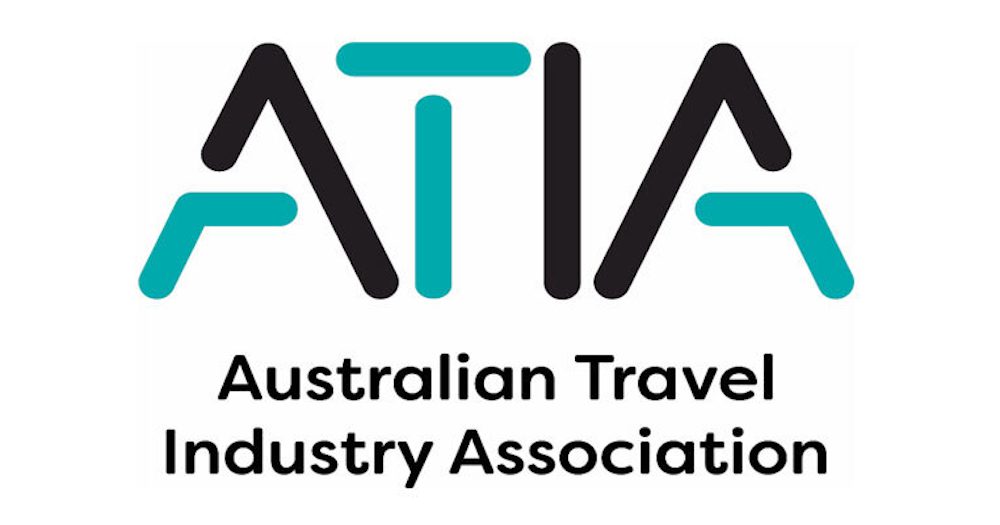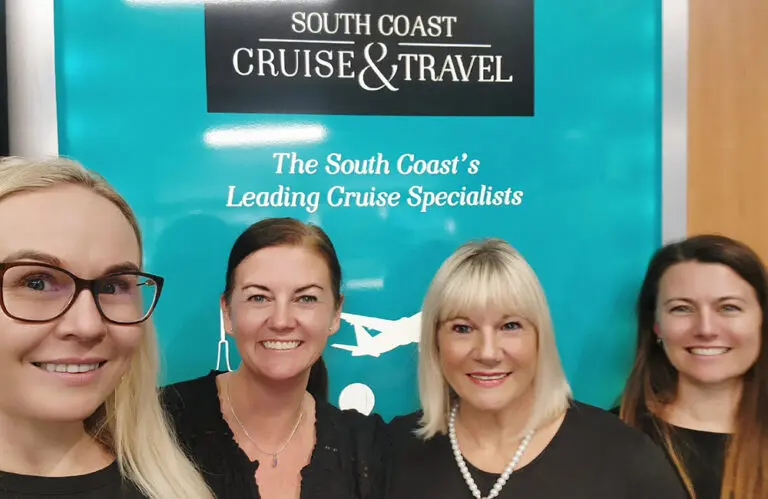What’s in a name? According to the Australian Federation of Travel Agents (or now the organisation previously known as AFTA), a lot more than you would think. After two years of “top-to-bottom” reviews and “hard work”, Australia’s peak travel industry body has rebranded to the Australian Travel Industry Association (ATIA) in what it calls the biggest-ever reform for Australia’s travel sector.
“We are announcing a significant change to the organisation, which is the establishment of the Australian Travel Industry Association,” ATIA CEO Dean Long says in an interview with Karryon.
“We’ve been working nonstop for the last few years in reviewing every product, service, program that we have, listening to members about the things that we’ve done well, the things that we need to improve on – and that’s been really important for us.”
Sitting down with Karryon, Long talks a lot about the need to better reflect the “broad family” that makes up the membership of the organisation.
“We’ve got tour operators, we’ve got travel agents, we’ve got wholesalers, we’ve got OTAs. We’ve got consolidators. And effectively, with the announcement we’re making today, we’re finalising the creation of the home for all of those people to come together … as one family,” he said.
“This sense of home that we think’s really been missing from the industry over the last ten or so years.”
Perhaps most importantly, that reflection refers to how the group represents its members to the community and government.
A stronger voice
With the change, Long says ATIA has “a name that will allow us to reflect the existing member structure that we have and sets us up to be able to advocate far more strongly on all the issues … because that’s been one of the key findings that we found from the pandemic – the complexity of the Australian travel industry is very difficult to understand when you’re in government”.
“So we need to have a voice that reflects the way our members are reflecting themselves into the community,” he added.
“There have been about 2,000 entities that have gone through ATAS since it was established, so there are about 4,000 names. When we looked at that, only 14 businesses have used the word ‘agent’ or ‘agency’ in their name. And so what that said to us was, we need a name that is aligned to the way our members are presenting themselves to the public.
“Over 70 per cent of the members are calling themselves travel businesses in some form, or travel advisors.
“So when we go into government … we can then utilise our brand to talk about specific issues facing agencies; we can talk about specific issues facing tour operators and wholesalers. But we have a brand that will keep that door open and more importantly open new doors into the future.”
According to the ATIA boss, of the group’s 1,200 current members, around 200 are tour operators and wholesalers. The rest comprise retail travel agents, “travel management companies, OTAs, home-based, host networks and groups”, among others.
Memberships unchanged

While ATIA expects the new name to create a stronger platform from which to advocate for the industry, membership will remain untouched.
“It’s really important to note that the membership structure isn’t changing. So there’s no new membership classes for businesses,” Long told Karryon.
But ATIA has opened up memberships to individuals. Read more about that.
The group has also introduced a few new initiatives for members.
Three caucuses
The most significant is the establishment of caucuses to represent three distinct membership cohorts that “over the last two years said ‘we really want to have some formal representation and see ourselves reflected in the association’”.
According to Long, the new caucuses give businesses the opportunity to connect and “talk to us, tell us the things that are working well, tell us the things that they need help with”.
“It’s about creating formal structure for informal discussions. So like-minded business owners can come together and really discuss the things that matter to them, and then have that say and that input to what we’re doing to government. And the community as well.”

The first ATIA caucus will be for independent travel agents.
“And that’s really important because the overwhelming majority of people in the industry are in that independent travel agent setting and so we want to make sure there’s a caucus there that they can meet with like-minded businesses and can discuss the issues and challenges facing their businesses.”
The second caucus is the independent contractors or home-based segment, “by far the fastest-growing segment in terms of participants in the entire industry”.
“And it’s that particular cohort of businesses that haven’t actually been able to engage with the association before because they weren’t actually eligible to be ATAS-accredited,” Long remarked.
“So the individuals in those businesses can participate in the new program.”
The third caucus is the tour operator and wholesale caucus, “which we’re really excited about because we’ve got 200 businesses in our membership already that identify [as] that type of business owner and we will be opening that up to everybody”.
Long said ATIA had also “absolutely reached out to CATO (the Council of Australian Tour Operators)” for its input.
The Travel Exchange

An “online meeting place for people to come together and discuss what’s going on”, a fresh platform called The Travel Exchange will underpin the new initiatives.
The Travel Exchange, says Long, “is about bringing everybody together on one platform, so we can share and collaborate and build the resilience of the industry up that way and start to build that culture of togetherness, which we’re really, really excited about”.
New logo
On the new ATIA logo, Long said the colours and design “leverage off the rich history and legacy that we’ve got here, but it’s a really modern approach”.
“I think it’s going to appeal to new people that are coming into the industry. I think it reflects the amazing innovation that our businesses have gone through over the last three years in particular, and the brand will really position that in the same ways that our members are positioning themselves to the community.”
According to Long, the rebranding will not impact the National Travel Industry Awards (NTIA).
For more information on ATIA, click here.






